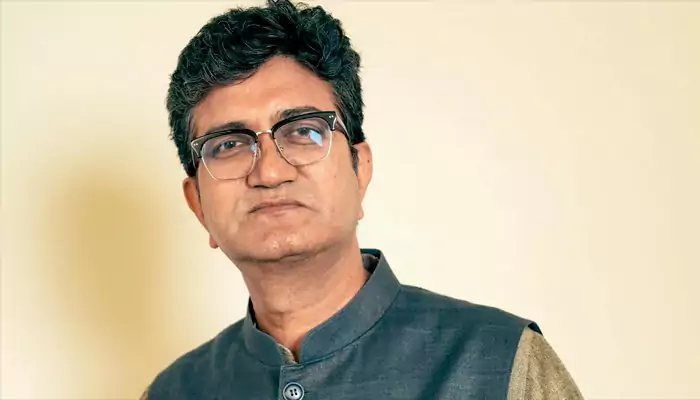
Reflecting on the quiet power of words that transformed stories into experiences
Some writers capture moments. A few capture emotions. Prasoon Joshi belongs to the rare kind who does both. His lyrics do not simply rhyme—they breathe. They comfort, question, and often stay with us long after the music fades. On his birthday, it feels right to pause and reflect on the quiet power of his work, which has shaped both cinema and advertising in India.
In films, Joshi’s words have been a bridge between heart and melody. Think of Taare Zameen Par. The song “Maa” distilled the ache of separation, the tenderness of love, and the helplessness of a child into a few carefully chosen lines. It was not just a song—it was an emotional mirror for countless families. His lyrics for Rang De Basanti carried youthful restlessness, while in Bhaag Milkha Bhaag, they embodied grit and resilience. Each time, his words slipped seamlessly into stories, deepening their emotional core.

Joshi’s repertoire in film is wide. From the playfulness of “Chand Sifarish” in Fanaa to the haunting nostalgia of Delhi-6, his writing has shown a remarkable range. What stands out is not just versatility but sincerity. His songs never feel ornamental. They carry truth. They feel lived in. It is this honesty that has brought him national awards and popular acclaim alike. But more than trophies, it has won him the trust of audiences who listen, knowing that his words will mean something.
Outside the cinema hall, Joshi found another canvas—the world of advertising. Here, too, he created language that cut through clutter and stayed. “Thanda Matlab Coca-Cola” was not merely a line. It became a cultural phrase, slipping into daily speech across India. The Happydent campaign, with its glowing smiles lighting up palaces, turned a chewing gum into a symbol of joy. These were not just advertisements. They were tiny narratives, written with wit and warmth, designed to live in memory long after the product had been consumed.
The success of Joshi’s advertising lies in his ability to tap into emotions. He understood that behind every brand is a human story waiting to be told. Whether it was urging cleanliness in the Swachh Bharat campaign or inspiring patriotism through a public service film, his words struck a balance between simplicity and resonance. In a world where attention spans shrink by the second, his jingles and slogans managed to hold, charm, and even inspire.
What makes Joshi unique is how effortlessly he moves between cinema and advertising—two worlds that are often seen as apart. In one, he writes songs that linger over decades. In the other, he crafts lines that must capture attention in seconds. The tools are the same—clarity, rhythm, and emotional truth. The outcomes are different but equally lasting. This balance reflects his belief that storytelling is not bound by format. It is bound only by honesty.
As the Chairperson of the Central Board of Film Certification, Joshi now plays a different role, shaping the broader cultural conversation. Yet his legacy as a writer remains the most luminous part of his journey. He has shown that whether it is a film song that makes us cry or a jingle that makes us smile, words have the power to shape collective memory.
On his birthday, we celebrate not only the lines he has written but also the silences he has filled—with empathy, with wit, and with truth. Prasoon Joshi’s journey reminds us that sometimes the most lasting stories are told not in paragraphs, but in a handful of carefully chosen words.